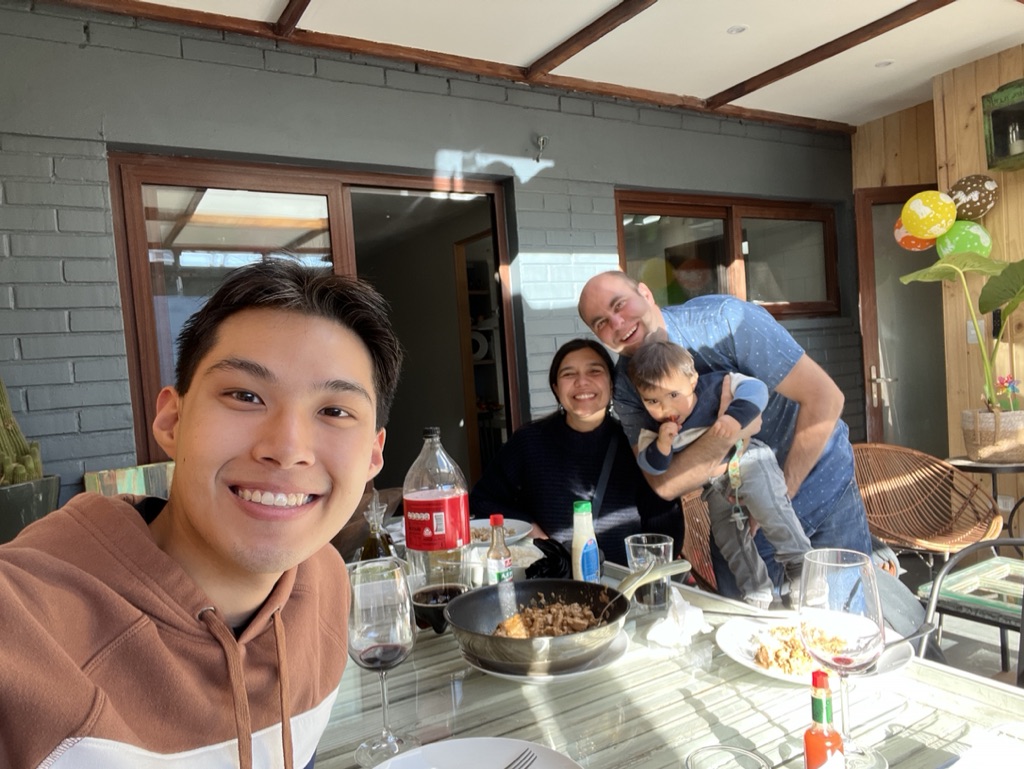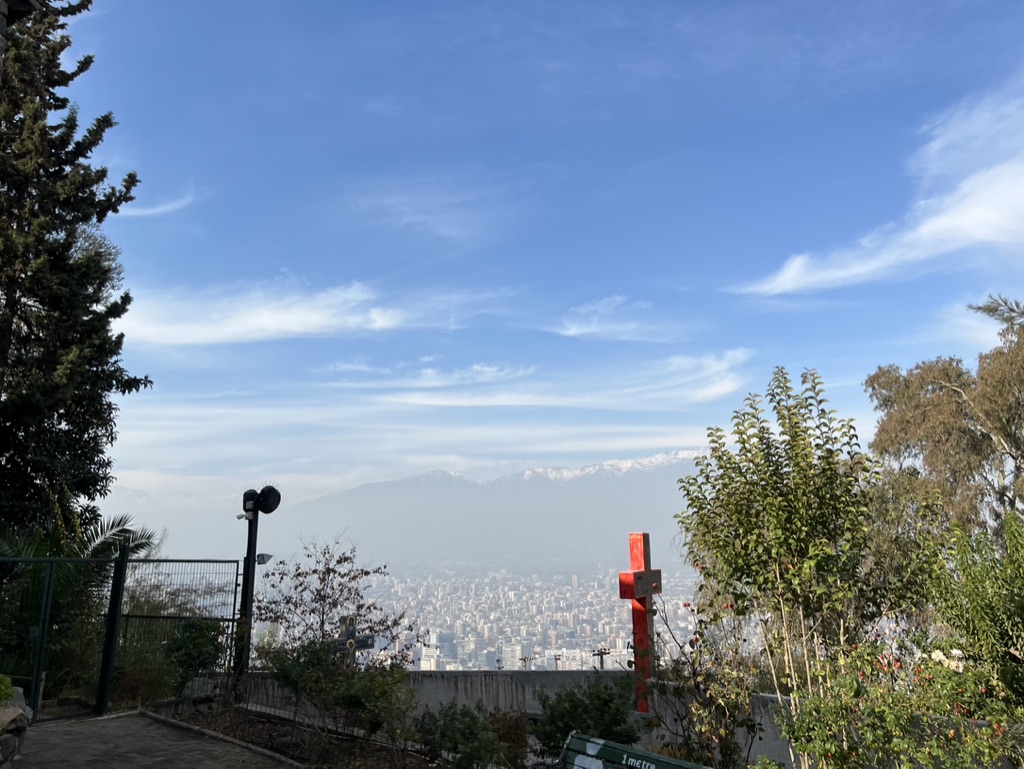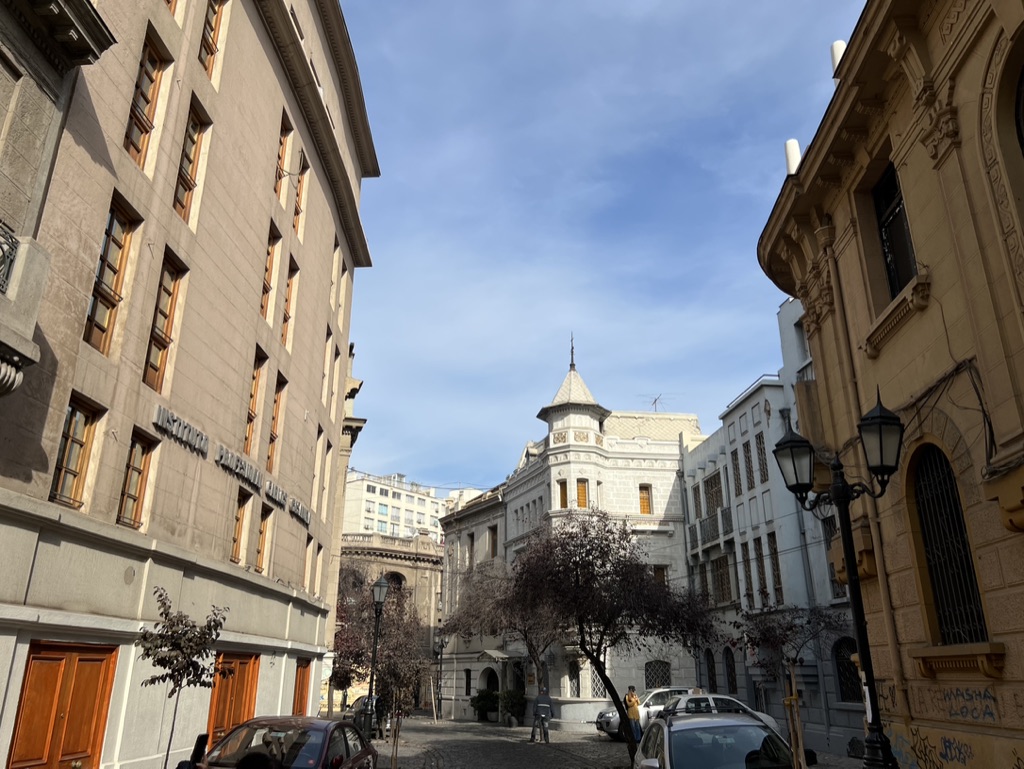¡Hola! Este blog es mi primer blog de Santiago, Chile.
I cannot believe that I have already been here for a little over a week! In the airport in Atlanta, Georgia, I met up with eight of the eleven other Notre Dame students who are part of the Santiago Summer program. When we entered the airport in Santiago, my Spanish-speaking abilities were immediately tested. I certainly struggled, but was able to make it through. We had to “quarantine” in a hotel for three days, and on the final day (last Sunday), I was able to meet my host family. My host family consists of my host mother and father, María and Nico, and their son, Matías. María and Nico are relatively young, so they asked me to not call them Mom and Dad, since that would make them “feel old.”

My first week was filled with both academic and leisure activities, which I want to save for another post, so I will only mention them briefly. Each day I make sure to go somewhere new, even when we don’t have anything assigned on the itinerary. I have eaten at many restaurants, bakeries, and cafés throughout the city, and have tried many new dishes and snacks made by my host family. I took a city tour with the other students around Baquedano. I have traveled to Pomaire, where I made a pot out of clay. I even hiked up San Cristóbal Hill, where there was an amazing view of the city.


Something that was surprising to me about Chile was the difference in colloquialisms. As expected, the Spanish used in Chile is slightly different than the Spanish used in other Spanish-speaking countries. At Notre Dame, we are taught to use “bebé” for “baby,” but in Chile, the word “guagua” is used. I was told that this word stems from an onomatopoeia, and that it is used by people of all ages. Another interesting use of language is the addition of “-po” to some words. One of the directors of the Santiago Summer program told us that often, Chileans add this “suffix” to the endings of certain words. However, there is no reasoning behind the addition, and there is no explanation to which words “-po” is added. I will certainly be asking around about this.
I am having the best time in Chile! I am learning so much from the people around me, eating delicious food, and making lifelong friends.
Hasta luego,
Aidan